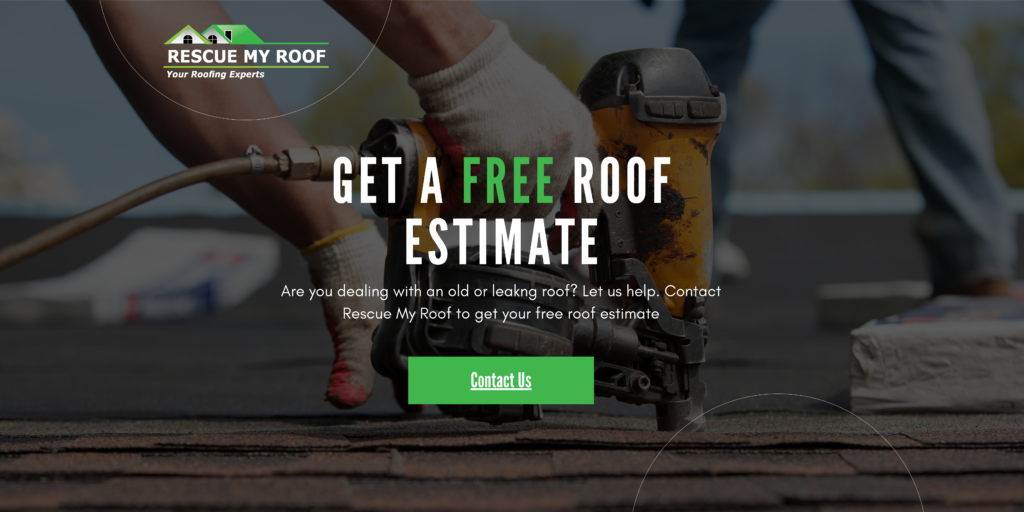Estimator’s Code of Ethics: How it Protects Homeowners
Hearing that you need a roof replacement or repairs is already challenging enough. Suddenly, your budget and home are in the hands of strangers who could take advantage of you.
While there are roofing companies out there that will price gauge and trick homeowners into paying thousands of dollars more than they should, there are also protections for homeowners.
Rescue My Roof has been a leader in the roofing industry for over a decade, helping homeowners get the best deals for their roofs. Today, we’ll share a secret of the roofing industry that will shed light on who’s evaluating your home.
We’ll talk about the Code of Ethics for estimators, what it is, what it means, and how it protects homeowners. Ultimately, you’ll feel more at peace going into your roof estimate appointment.
What is the Estimator’s Code of Ethics?
The Estimator’s Code of Ethics outlines the practices estimators should follow. The code protects homeowners from harmful estimating practices like price gouging.
The American Society of Professional Estimators says, “The philosophical foundation upon which the rules of conduct are based is not intended to impede independent thinking processes, but is a foundation upon which professional opinions may be based in theory and in practice.”
Simply put, the Code of Ethics exists to hold your estimator accountable.
Key Points of the Estimator’s Code of Ethics
The Code of Ethics presents six main principles to which estimators shall adhere.
Here is a breakdown:
1. Professional estimators shall perform services in areas of their discipline.
Professional estimators should not only accurately present their ability to perform services, but they shall only accept jobs in which they are qualified by years of education and experience.
“Estimators must retain their integrity and professionalism by actively avoiding involvement in situations that may lead to loss of independence and integrity as a professional estimator.”
In the roofing industry, the person estimating your roof isn’t just a salesperson. They are trained to identify problem areas of your roof that need repair or replacement.
2. Estimators Attend Continuing Education Programs
In short, this section outlines how professional estimators shall always strive to continue their education.
They may attend conferences, talk with other industry professionals, or even return to school for extensive training in their fields.
Professionals in the roofing industry are constantly learning as they encounter new scenarios, working with different manufacturers, and keeping up with changes in roofing technology.
3. Code of Conduct
The code of conduct does not outline any specifics of contact with clients. However, it outlines how estimators should interact with each other.
It states all estimators should treat other professionals with respect: “The professional character of our society is dependent upon continuing mutual cooperation with one another.”
Professional estimators should always act honorably and avoid situations that may “erode public respect.”
4. Employer and Client Confidentiality
Estimators cannot share privileged information about methods used in estimating procedures. Additionally, they cannot share details about a client’s affairs.
“Treat in strict confidence all information concerning a client’s affairs acquired during the fulfillment of an engagement and completion of an estimating procedure.”
So, according to the Estimator’s Code of Ethics, if an estimator stumbles across a private piece of information, they must keep it to themselves.
5. Establish Guidelines for Setting Prices and Estimates that are Fair and Equitable
Canon five of the Code of Ethics outlines practices deemed immoral for estimators. The first of which is bid shopping.
Bid shopping is when a contractor contacts several subcontractors to reduce the previously quoted prices. The code deems this practice to be “unethical, unfair and is in direct violation of this Code of Ethics.”
Additionally, contractors are not allowed to accept quotes from unqualified suppliers or leak quotes to other contractors before bids. If a contractor receives a quote from an excessively low supplier, they should request the supplier to review its price.
Estimators are also not allowed to pad or inflate estimated prices. Many roofing contractors inflate prices to immediately drop them down when homeowners question them. While companies may practice this as a sales tactic, it’s against the code of ethics.
6. Detailed Estimates
An estimator must review all documents and damages necessary to generate an accurate estimate.
“Each estimate should be cross checked by means that will insure that it is technically and mechanically free from mistakes, oversights or errors.”
Once you’ve received a roofing estimate, the price should only change if unforeseen circumstances (such as rotten decking) exist. Professional roofers need to get the numbers right the first time. Otherwise, they inconvenience homeowners.
How the Code of Ethics Protects Homeowners
The Estimators Code of Ethics protects homeowners by outlining forbidden practices and setting high standards.
Not only does the Code of Ethics ensure estimates should be done by a contractor and be as accurate as possible, but it also forbids practices that raise prices to defraud homeowners.
You can learn more about roof estimates with “How to Break Down A Roof Estimate (with Sample)” and “4 Steps to Creating A Roof Replacement Estimate.”
Are you looking for a reputable roofing contractor in southeastern Wisconsin? Contact Rescue My Roof today to get a free estimate.


